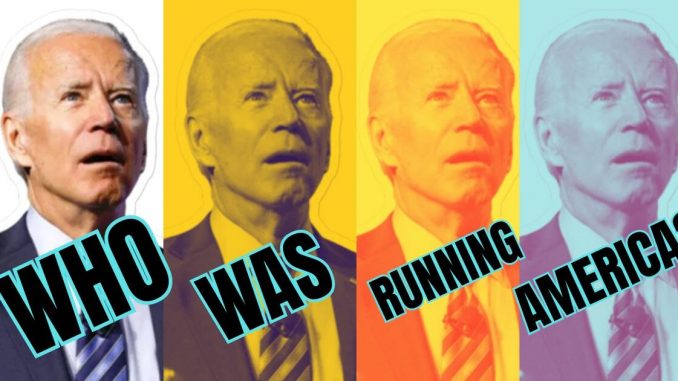
| Published June 27, 2025
Senator Eric Schmitt (R-MO) has launched what he describes as a “first-of-its-kind” investigation into the Biden administration’s use of the autopen, a device that can mechanically replicate a signature. This move stems from startling testimony by Neera Tanden, former White House Domestic Policy Director, who admitted to authorizing presidential documents—including pardons—using the autopen, allegedly without direct consultation with President Biden.
Tanden’s admission under oath suggests that during her tenure (Oct 2021–May 2023), she oversaw the mechanical signing of executive actions, which included six pardons issued on Dec. 30, 2022, while Biden was on vacation in the U.S. Virgin Islands.
Schmitt’s concern is twofold:
-
Legal authority — Were these signatures constitutionally valid without the president’s explicit review or approval?
-
Presidential capacity — Does this pattern hint at diminished engagement or awareness from the president himself?
He’s invoking provisions under the Presidential Records Act to access documents that are not typically available to the public—requesting internal memos, communication trails, and policies relating to autopen usage, the 25th Amendment, and even the ERA (Equal Rights Amendment) declaration made late in Biden’s term.
🧠 Added Context: Why This Matters Beyond Politics
-
The Autopen Has Been Used Before
Past presidents, including George W. Bush and Barack Obama, used the autopen—but typically in predictable, ceremonial contexts and with full authorization. Critics argue that what’s different here is the scope, frequency, and possible lack of awareness from Biden himself. -
Questions About Presidential Fitness
This investigation adds to ongoing Republican scrutiny over President Biden’s cognitive and physical fitness—something that’s been increasingly highlighted by conservative media and congressional Republicans since early 2024. -
Constitutional Implications
The U.S. Constitution (Article II) assigns exclusive powers to the president—including the power to issue pardons. If aides can exercise these powers without his input, it raises questions about executive accountability and separation of powers. -
What Happens Next?
If the Archivist of the United States (now Sen. Marco Rubio) grants access to the sealed records, Schmitt may either validate concerns of executive detachment—or face a backlash for overreaching. Either way, the outcome could shape the legacy of Biden’s final year and fuel 2026 political narratives.
🔍 Legal and Constitutional Implications
-
Presidential Legitimacy Questioned
If critical executive actions (like pardons) were signed without President Biden’s direct review, it may call into question the constitutional validity of those acts under Article II of the U.S. Constitution. -
Precedent for Executive Delegation
This could set a dangerous precedent: that unelected officials or staffers can perform core presidential duties, including issuing pardons or policy declarations, without direct presidential involvement. -
Autopen Policy Reform
This scrutiny could push Congress or the National Archives to tighten regulations around autopen usage or require public disclosure anytime it’s used for significant legal or constitutional actions.
🧠 Political Implications
-
Presidential Capacity Debate Intensifies
The controversy may feed broader claims by political opponents that President Biden has become a “figurehead” rather than an active executive. This may influence future 25th Amendment discussions. -
Fuel for 2026 Elections
If damaging documents are uncovered, they could become a major talking point for Republicans in upcoming congressional races, framing Democrats as operating through unelected proxies. -
Internal Democratic Tension
Revelations about behind-the-scenes decision-making might fracture trust within the Democratic Party, especially among those already concerned about transparency or Biden’s inner circle.
📜 Institutional Implications
-
Challenge to the National Archives
If the Archivist denies access to requested documents, it could create a constitutional showdown between Congress and the Executive Branch over control of presidential records. -
Pardons May Be Re-Examined
Any pardons or executive orders signed with questionable authorization could face legal or public pressure to be overturned or re-reviewed, especially if political favors or errors are uncovered. -
Future Presidents May Face New Limits
Future administrations may be forced to publicly disclose when the autopen is used, possibly weakening its convenience as a bureaucratic tool.
💬 Overall Takeaway:
Senator Schmitt’s investigation into President Biden’s alleged misuse—or overuse—of the autopen raises serious questions not just about procedural formality, but about the authenticity of presidential authority. While past administrations have used the autopen for routine matters, the current scrutiny hinges on whether it was used for substantive executive actions without the president’s knowledge or consent. If true, this could blur the line between lawful delegation and unauthorized governance, challenging both constitutional norms and public trust.
Whether this effort “blows the whole thing open” or not will depend on what the sealed presidential records reveal—but its implications are already echoing through legal, political, and institutional corridors.





Be the first to comment